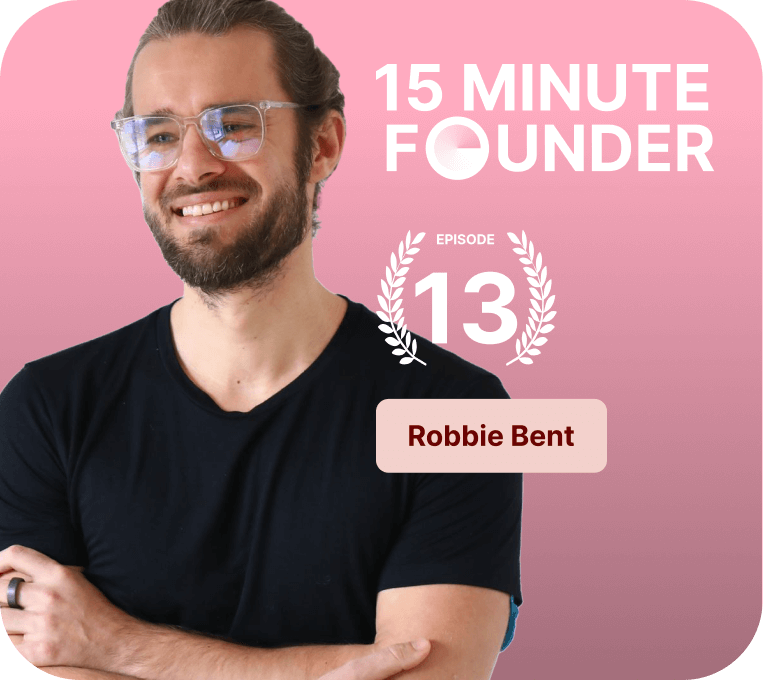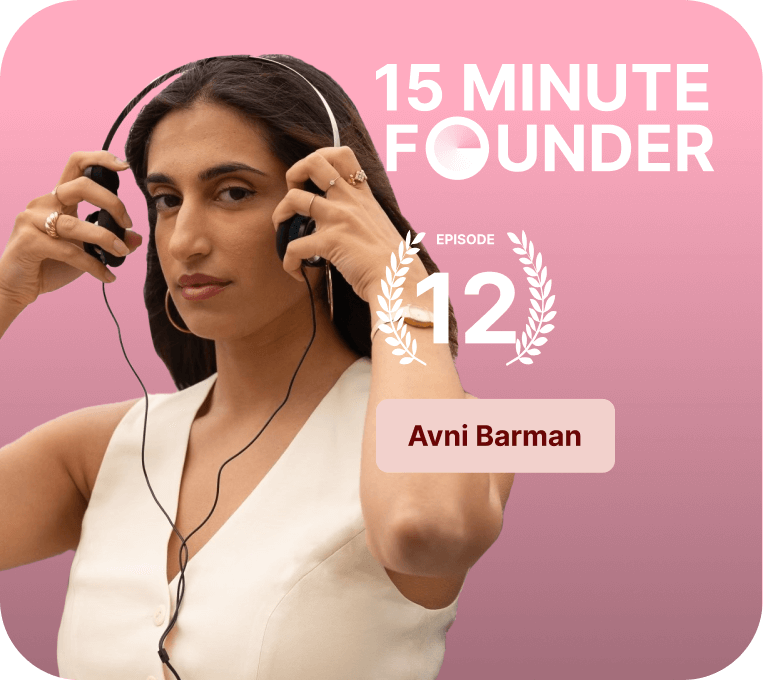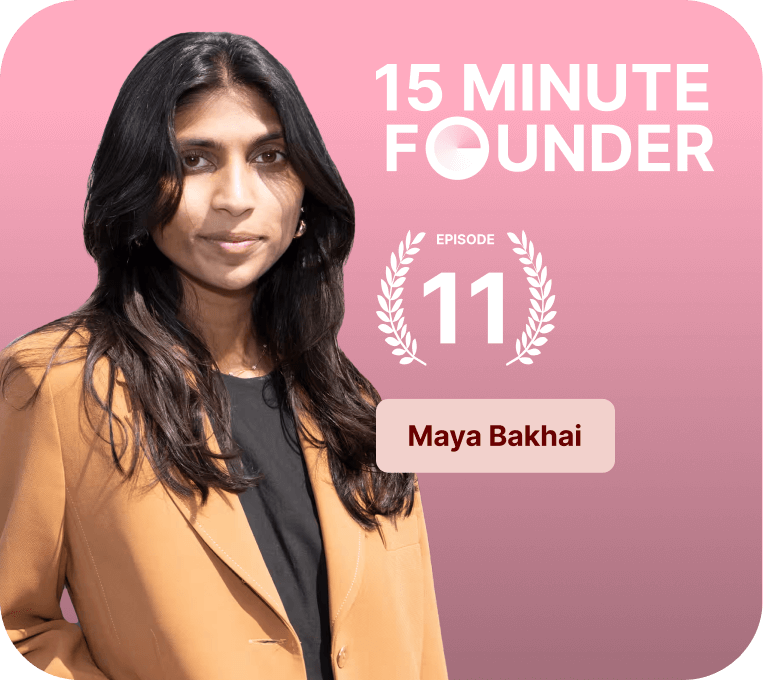Episode #14 - Channing Allen
#15MinuteFounder
Channing Allen is the co-founder of Indie Hackers, where he helps share the stories, business ideas, strategies, and revenue numbers from the founders of profitable online businesses.
Originally started in 2016, Indie Hackers would go on to be acquired by Stripe in 2017. Then in 2023, Channing and his co-founder spun Indie Hackers out of Stripe to return to their roots as a truly indie business.
Highlights from the chat
What is an Indie Hacker?
Indie hackers are founders of small, tech-driven businesses that operate independently without seeking to become the next Elon Musk or Mark Zuckerberg. They’re not aiming to disrupt industries with unicorns but instead focus on building sustainable, profitable ventures that often get overlooked by the mainstream tech press.
How did you start Indie Hackers?
Indie Hackers was born out of a recognition that there was a growing group of small, profitable tech founders who weren’t being celebrated. My brother and I saw that stories of founders transparently sharing revenue and strategies online were going viral. We created Indie Hackers as a media platform for these stories, which quickly gained traction.
What was the growth hack or secret to getting Indie Hackers off the ground?
There was no secret or growth hack. We just tapped into something people were craving. Our first few stories went viral, and we quickly realized that people were eager to learn from founders who were willing to share everything transparently.
How did the Stripe acquisition happen?
Stripe’s acquisition of Indie Hackers was strategic. Stripe’s mission is to increase the number of people starting companies, and Indie Hackers was inspiring exactly the kind of founders they wanted to reach. Patrick Collison, CEO of Stripe, was a fan of our work, and the acquisition was about scaling our impact, not necessarily about revenue.
What is Indie Hackers’ business model? How do you monetize a media company like this?
We have a subscription model for our content and sell ads in our newsletter, which now has over 110,000 subscribers. Additionally, we co-create a lot of our content with our readers, who are founders and entrepreneurs. This community-driven approach allows us to produce high-quality content while keeping costs down.
What’s the bigger mission for Indie Hackers?
Our broader mission is to make the Indie Hacker path a legitimate, aspirational way to become a startup founder. We want to show that you don’t have to aim for a unicorn to be successful. We hope to inspire more people to realize that they can start a small business and succeed on their own terms.
You’ve said that not everyone is cut out for entrepreneurship. Can you explain?
Not everyone is cut out for entrepreneurship because it’s a tough path that requires a unique set of skills and a certain mindset. Society tends to push the idea that everyone can be an entrepreneur, but that’s not true. Some people are better suited to other roles, and that’s perfectly fine. It’s about finding what fits your strengths.
What motivates you today?
Power. But not in the traditional sense. I’m motivated by the idea of gaining more agency and control over my journey. The more skills, knowledge, and experience I accumulate, the more I can take on larger challenges and make a bigger impact.
Do you believe in work-life balance?
I prefer the concept of work-life harmony. When you’re an entrepreneur, especially if you work from home, the lines between work and life blur. Instead of trying to separate them, I aim for a balance where my work, social life, health, and personal development coexist and complement each other.
What’s your approach to productivity?
I follow a system of “never zero commitments.” For example, I have small daily goals like doing at least two push-ups or meditating for five minutes. Even on busy days, I can hit these minimal targets, and more often than not, that momentum leads me to do more.
What advice would you give to someone just starting out?
Always know your “ABZs.” Know where you are (A), where you want to go (Z), and focus on the next step (B). Don’t worry about steps C through Y. Tackle what’s immediately in front of you and don’t get overwhelmed by the entire journey.
How do you go from wearing all the hats in a startup to scaling and taking them off?
The skills that get you from zero to one—like doing everything yourself—won’t get you from one to two. At that point, you need to start delegating, hiring, and managing to grow. Taking off hats means leveraging the resources and capital you’ve accumulated to reach the next stage.
You’ve taught yourself to code and write. How did you learn both?
It’s all about embracing the “dialectic of progress.” To get good at anything, you first have to be bad at it. Whether it’s coding or writing novels, it’s about enduring the learning process, taking small steps, and constantly improving.
Any final thoughts on building a startup?
It’s a constant argument against failure. You have to continuously solve problems, improve, and grow. The journey never really ends, but that’s the beauty of entrepreneurship—there’s always another summit to reach.
TIMESTAMPS:
00:36 What is an Indie Hacker?
01:29 Starting From Scratch
03:13 Acquisition by Stripe
05:15 Monetizing Media
08:16 The Goal for Indie Hackers
09:44 Becoming an Entrepreneur
12:03 Money, Power, Pleasure, or Fame
14:49 How It Started
17:53 Hot Take
20:09 Work-Life Balance
22:11 Best Time to Start Your Day
23:49 The Never Zero Approach
26:06 The Earthquake Book
30:24 Advice for Entrepreneurs
33:11 Taking The Hats Off
35:49 Continuous Learning and Growth
See other podcasts
Start your dream business with doola today
Sit Back & Relax. We’ll Handle the Rest.





